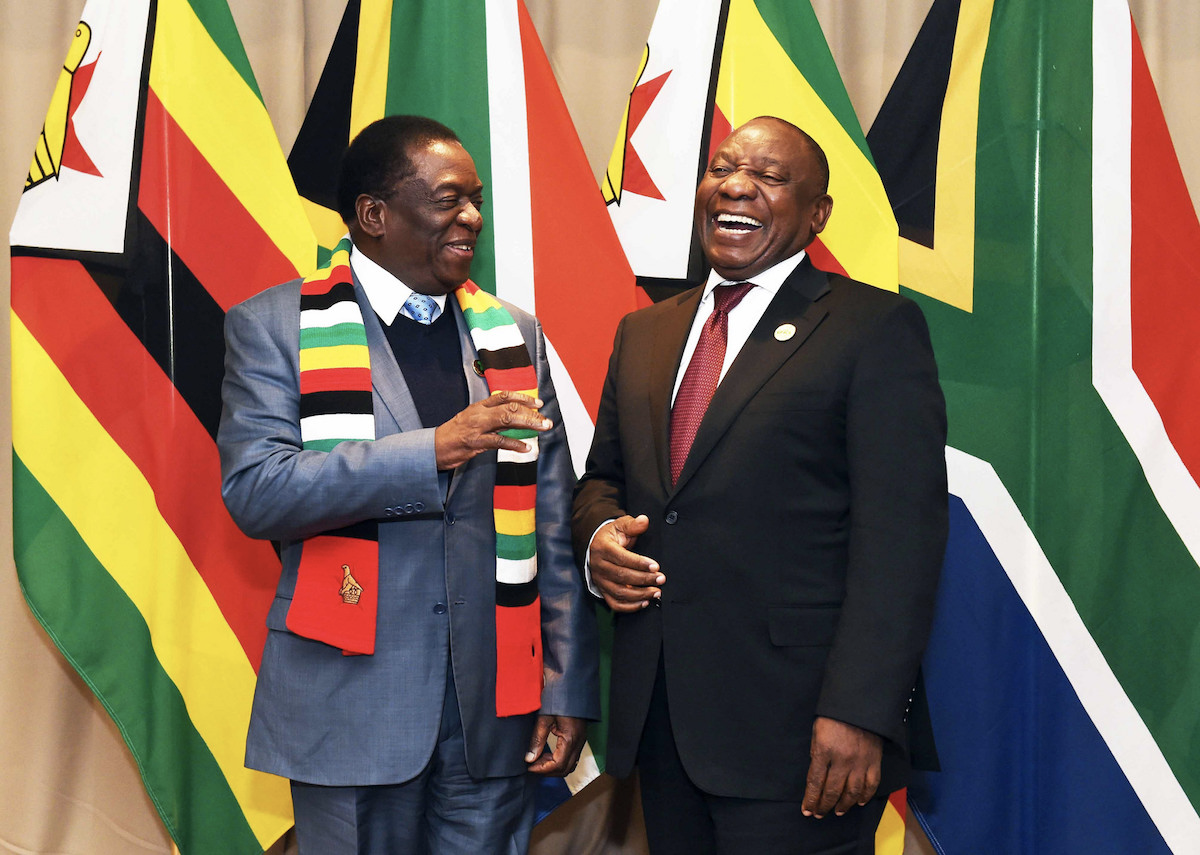In early November 2017, Robert Mugabe was removed after 37 years in power, in what was effectively a bloodless coup. Millions of people celebrated. Everybody was in full party mode, hugging each other and crying tears of joy.
All ages and races joined together in this moment of unity and to celebrate the end of living life under Mugabe. Even the soldiers sitting on their tanks embraced the public and joined in the party.
The next few weeks were full of real joy and hope. However, the hope was soon to be extinguished.
His successor and former vice president, Emmerson Mnangagwa, promised a break from Mugabe’s authoritarian rule and economic mismanagement, declaring a “new Zimbabwe” that is “open for business.” After two years in power, to what extent has Mnangagwa delivered on his promises? In short, it’s bleak.”
In a RAND study published this week—based on interviews I conducted in Harare, Zimbabwe, with politicians across the political spectrum—I systematically assess Zimbabwe’s political and economic reform efforts that Mnangagwa has been touting over the past two years. I found very little genuine progress, along with an uptick in repression and a rapidly declining economy that is near collapse.
On the political front, reform promises are severely lagging. The report assesses five main reform areas, including elections, legislation, the security sector, judiciary, and repression. The research revealed very few tangible steps toward reconfiguring Zimbabwe’s autocratic system. Repression has increased and the military is ascendant. Council on Foreign Relations, The Zimbabwean, 2020.
From the above you can see that there has been no tangible improvement in life after Mugabe. In some respects, the situation has worsened. “With the old guard and the military still firmly in power—and both benefiting from their perches atop the highly cartelized-and patronage-based economy—genuine reform is unlikely in the next one to three years under present conditions in Zimbabwe. The country is likely to continue down a path of political polarization, protests, political violence at the hands of the state, and economic deterioration.” Council on Foreign Relations, The Zimbabwean, 2020
Only my parents are now left in Zimbabwe and obviously when I go home from University during holidays. My one brother is now married and living in London and the other is in Sydney. Neither of them returned to Zimbabwe after tertiary education in the UK. This is one of the many tragedies of life under the Mugabe regime – families completely separated and living at different ends of the world. Life in Zimbabwe is currently at a very low point and my parents, who are nearly 60 years old are having to consider their future and if they can weather the storm again as we head back into hyperinflation. My mother and father both run companies with the total staff complement of being close to 150 people, so it is not easy to make decisions as so many people are relying on them for their survival. But they may have to!
In addition, crime is escalating as unemployment is estimated to be in excess of 90% and crime is the only job that some of the youth have ever known. Just over a year ago, my mother was subject to a brutal armed robbery in our house at 7.30 pm in the evening. One of the most heartbreaking stories she told me was when she had to go to Harare Central Police station to do an identity parade. She walked up the line of 21 prisoners and they all looked so young – barely adults. She came back into the Inspector’s office and told him that she could not recognize any of them (her robbers were wearing balaclavas and all black clothing), she said to the Inspector how young all of these men looked. He looked at her with his tired eyes and said, “Mrs Pickering, all of these young men have been involved in some other robbery, we were just hoping that they may have been involved in yours”. This whole incident has, as you can imagine, had a very significant impact on our priorities and made my mother feeling very vulnerable.
In the past few weeks we have started to hear rumours of a potential departure of Emmerson Mnangagwa and it would seem that the army is playing a pivotal role in negotiating his departure, although these rumours cannot be verified. (spotlight-z.com). But, will it change anything. The ruling party is so embedded and rotten. Only time will tell.

